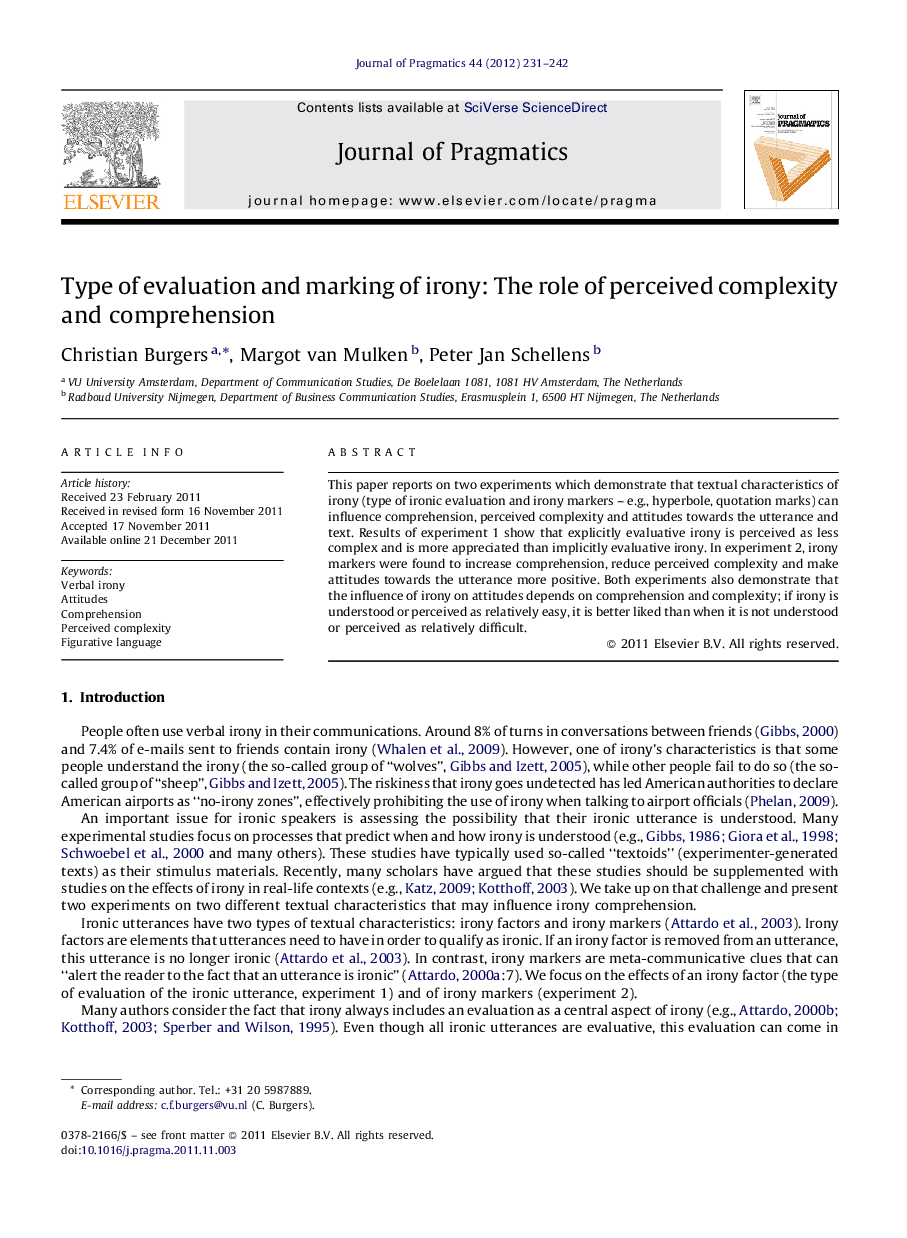| Article ID | Journal | Published Year | Pages | File Type |
|---|---|---|---|---|
| 933324 | Journal of Pragmatics | 2012 | 12 Pages |
This paper reports on two experiments which demonstrate that textual characteristics of irony (type of ironic evaluation and irony markers – e.g., hyperbole, quotation marks) can influence comprehension, perceived complexity and attitudes towards the utterance and text. Results of experiment 1 show that explicitly evaluative irony is perceived as less complex and is more appreciated than implicitly evaluative irony. In experiment 2, irony markers were found to increase comprehension, reduce perceived complexity and make attitudes towards the utterance more positive. Both experiments also demonstrate that the influence of irony on attitudes depends on comprehension and complexity; if irony is understood or perceived as relatively easy, it is better liked than when it is not understood or perceived as relatively difficult.
► Two experiments investigated the effects of textual features of irony on comprehension, perceived complexity and appreciation in a natural setting. ► Experiment 1: explicitly evaluative irony is perceived as less complex and is more appreciated than implicitly evaluative irony. ► Experiment 2: irony markers increase comprehension, reduce perceived complexity and make attitudes towards the utterance more positive. ► Both experiments: the influence of irony on attitudes depends on comprehension and perceived complexity.
